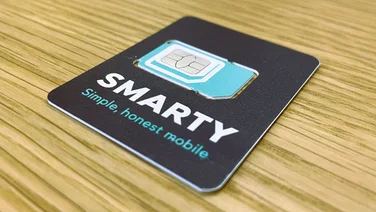To help us provide you with free impartial advice, we may earn a commission if you buy through links on our site. Learn more

Under plans to boost broadband speeds across the country, and close the digital divide between urban and rural regions, the government recently launched the Universal Broadband Service Obligation.
Now, following a recent statement from Ofcom, we know when this service obligation will come into force. From March 2020, homes across the UK suffering from slow broadband speeds will be able to request faster, affordable connections.
In particular, where homes are struggling to achieve a minimum download speed of 10Mbits/sec, and upload speeds of 1Mbit/sec, residents will be able to ask designated providers to install networks capable of hitting or exceeding this minimum, free of charge.This minimum speed will be reviewed over time as maximum speeds across the UK increase, and in particular when 75% of UK premises have superfast broadband. This 75% target was set out as part of The Digital Economy Act 2017 and superfast broadband is considered to be a service capable of achieving download speeds of at least 30Mbits/sec.
What is the Universal Broadband Service Obligation?
The government introduced legislation for a universal service obligation, or USO, in March 2018. The Universal Broadband Service Obligation law was passed to give homes and businesses “the right to request a decent and affordable broadband connection”.
For a broadband service to be classed as decent, it must offer a download speed of at least 10Mbits/sec, and an upload speed of 1Mbit/sec. This was based on Ofcom research that found 10Mbits/sec is the speed currently needed to meet an average household’s digital needs. At these speeds, multiple users “should be able to stream videos, game and browse the web without lag”.
However, research from Broadband Genie in January found that only 27% of broadband users think this is an acceptable target.
READ NEXT: Best broadband providers 2019
Ofcom has now announced that it will be tasking BT to carry out any required installations across the UK with the exception of Hull, which will be connected by KCOM.
The communications watchdog has given BT and KCOM until 20 March 2020 to make the necessary preparations ahead of customers being able to make their requests from that date.
How will the USO scheme work?
When a customer makes a request under the USO scheme, BT or KCOM will have 30 days to confirm whether or not they are eligible. This will involve checking to see whether the property already has access to decent, affordable broadband, or it is on a list to be connected via a publicly funded or government scheme within 12 months.
“Affordable” is a relative term, but Ofcom has set the price at £45 per month. This means that if it is possible to get a service exceeding 10Mbits/sec, but it will cost the customer more than £45 per month to do so, they will be entitled to request a USO connection.
If a customer is due to get decent broadband within the next year, their request will be rejected. If, after the 12 months have passed, they’re still not achieving decent speeds at an affordable price, they can apply again. It will be possible to appeal a decision, but the details of this have not yet been released.
Once a request has been confirmed and accepted, BT or KCOM will have to deliver the connection “as quickly as possible”, with at least 80% of connections going live within 12 months, 95% within 18 months, and 99% within 24 months of the confirmed USO order.
KCOM must deliver a USO connection as quickly as possible and no later than 12 months after someone places their order, unless there are “exceptional circumstances”.
If there is a cost to install the new service on eligible homes, the scheme will cover these costs up to £3,400. Once an installation cost exceeds this price, the customer can choose to pay the difference or withdraw their request.
Customers who are connected through the new universal service will then pay the same prices, and receive the same service quality, as other broadband customers with an equivalent connection.






